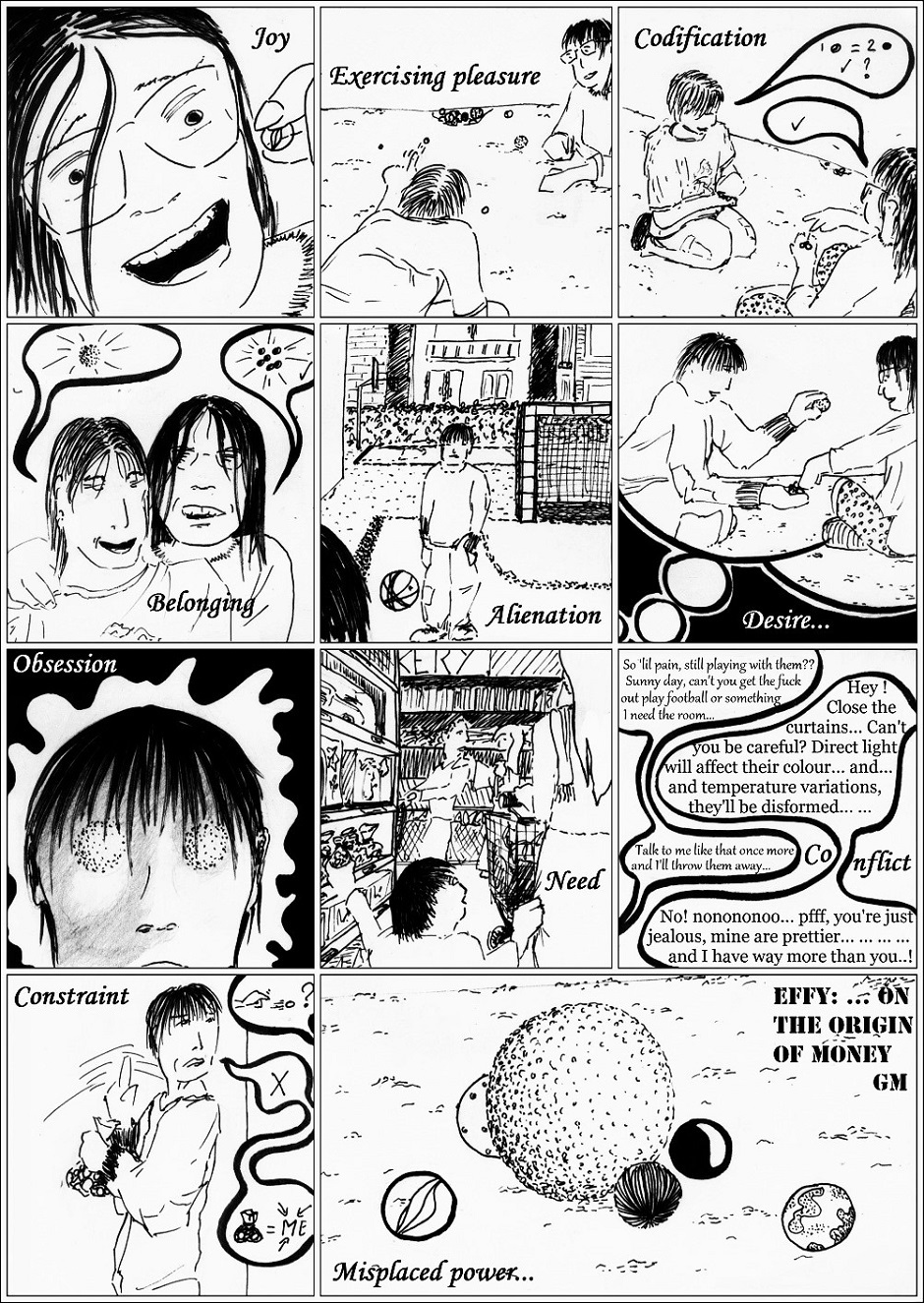Adam Smith’s “The Wealth Of Nation” presented the origin of money by society in its chapter four. Now my Effy just reversed the logic. I modestly developed a model on how money impacted individuals in societies, and challenges that this create.
Adam Smith’s “The Wealth Of Nation”

Adam Smith was an economist. In 1776, he wrote one of the most influential political economy book in history entitled “The Wealth Of Nation”. Whether you agree or not with his views, the book is a fundamental read for anyone interested in economy; and as such he is studied by economists worldwide. Chapter four (“Of the origin and use of money”) details how money came to be, as a tool for societies to improve exchanges’ efficiency.
What Adam Smith does not cover is the impact of money over individuals within the society. That’s what this episode is all about. I tried to lay down basic stages using a parallel with marbles, a game from primary school. Kids game are never innocent!
Impact of money over individuals in societies: a model
- Joy -> first possession, might it be earned or given, but the value remain abstract.
- Exercising pleasure -> first purchase, and the realization that money has a real tangible value that can buy things (such as a game of marbles…).
- Codification -> first negotiation, and the realization that the value given to money is not fixed and can be discussed.
- Belonging -> first invitation, and the realization that money can open the doors of certain group within the society to the individual.
- Alienation (should be a 4 bis really, because it comes together with belonging) -> first rejection, and the realization that lack of money can close doors of certain parts of the society to the individual.
- Desire -> first jealousy, and the realization that the lack of money prevents the individual from getting what she/he wants.
- Obsession -> the first time money starts losing it’s rational and tangible value as a mean to an end for the individual, and become an irrational end in itself.
- Need -> first time the individual is acting to earn money for the sake of money, without ulterior and clear motives. This cements money as an end and no longer a mean to an end.
- Conflict -> first contradictions between the mean and the end, that can lead to the individual working against other individuals or even societies, in order to secure money.
- Constraint -> first time the need for money is so strong that it actually prevents the individual from exercising its value.
- Misplaced power -> when money is collected by the individual to the point it is no longer used to exercise its value, it becomes useless and worth nothing…
Implications of this theory
Now as individuals, we might all have experienced some if not all of these stages. The last stage is even more important. In effect, actions of individuals impact the role and function of money for the society as a whole. Societies created money to represent tangible value; a mean that has an associated power. If important amounts of power are not being used, then this power loose its value. And that is for every individuals in the specific society, lowering the ability of comparatively less wealthy ones.
With the widening wealth gap, open societies might drastically modify the way they conceptualize and operate money. Acknowledging its current status of an end for many individuals, and the challenge this poses for the society. This might generates alternative methods to value exchanges, and we see experiments in secluded societies, in which money disappears. This will lead to even more alternative methods to limit money’s power, through transaction restrictions of drastic adaptations on societies’ tax and subsidy systems. Or this might trigger more and more conflicts within societies, if it’s not already the case…
PS: If you’re not familiar with Adam Smith or his works, rather than reading summaries, I strongly suggest that you treat yourself with “The Wealth Of Nation” directly, which is easily available online for free (it can be found here (Geo Lib), here (Holy Books) or here (Federalist Papers), and many other places).


[…] 45 – On the origin of money […]